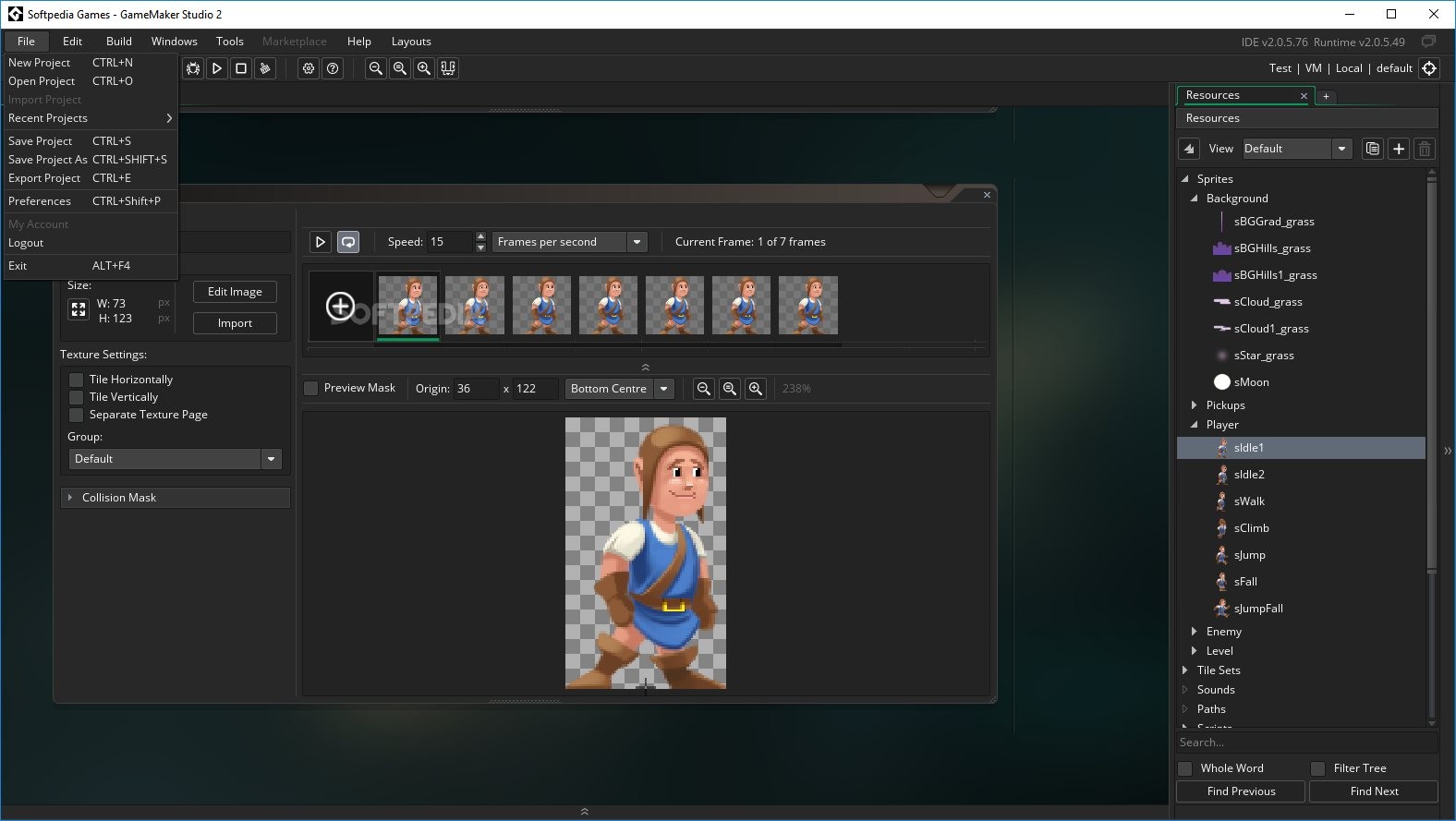

- #Gamemaker studio 2 or unity full#
- #Gamemaker studio 2 or unity android#
- #Gamemaker studio 2 or unity pro#
- #Gamemaker studio 2 or unity license#
- #Gamemaker studio 2 or unity plus#
Use Game Maker Studio! Being a programmer means you might have some more systems thinking, but ultimately having stuff like tile editors easily means you're not going to spend a month building out your own little tools. Also if you're not working on something by yourself, suddenly other people can help out a lot. "But I'm a programmer, let me write code!" Trust me, when you are using blueprints you both get a much more discoverable API, and can actually get all the fancy built-in 3d stuff to work. But if you're a programmer that will at least give you an idea of what is implemented and what isn't. They tend to be limited to playing sound, displaying gfx, and handling input. Try one of the many "2d game library" things. If you're a programmer, there are a couple ways you can experience happiness: And if you do need help, we do have the GDevelop Academy with plenty of game development tutorials, as well as an incredibly helpful community of fellow creators ready and willing to give you a hand.Unity suffers from being 3d by default (so you're kind of defaulted into "physics-activated 3d world" stuff), having very low discoverability of features, and a lot of googling to land on the Unity forums. GDevelop is easy to use, so you can start making games straight away. Unity is more well-known and therefore there are tons of tutorials and courses out there, but it also has a steeper learning curve.
#Gamemaker studio 2 or unity full#
GDevelop also comes bundled with over 170 examples to get you started straight away, and an asset store full of free assets for you to use in your games, even commercially! Community and Learning Resources Finally, you're also supporting the development of an open-source game engine accessible to everyone! With a subscription, you also help to pay for the hosting, server, and bandwidth costs for the packaging and other online services. Amazing tools like the Debugger, Live Preview, and more are always free, and always will be. Those are the only differences between having and not having a subscription.
#Gamemaker studio 2 or unity android#
Pro: you can automatically export 70 times a day to an Android app and 70 times a day to Windows/macOS/Linux.Indie: you can automatically export 10 times a day to an Android app and 10 times a day to Windows/macOS/Linux.You can automatically export to HTML5 locally an unlimited number of times. Free: you can automatically export twice a day to an Android app and twice a day to Windows/macOS/Linux.They both allow you to disable and customize the GDevelop splashscreen, and both come with more daily one-click exports:
#Gamemaker studio 2 or unity pro#
There is, however, the possibility of supporting the project by purchasing one of the Premium subscriptions: Indie for €2 per month, or Pro for €7 per month. It doesn't matter how much money you make from your games. GDevelop, on the other hand, is completely free, forever.
#Gamemaker studio 2 or unity license#
There are other licenses too: Pro, which starts at US$1,800 per year per seat, the Industrial Collection, which starts at US$2,520 per year per seat, and the Enterprise license which starts at US$4,000 per month per 20 seats.

#Gamemaker studio 2 or unity plus#
The licenses start at US$399 per year, per seat for a Plus license, so if it's four of you making a game, you'll need to pay $1,596 per year. If you reach that, then you need to pay a licensing fee. In the case of Unity, you can use the engine to its full capacity until you've earned US$100,000 from games made with Unity. Both GDevelop and Unity are free to use, depending on your application. PriceĪs with any comparisons between apps, in this article comparing GDevelop Vs.

If your game is successful, it's still possible to ask a game porting company to use their own technologies and certifications to port your GDevelop games to a console - so it's not a huge problem should your game become massively successful and become the next Among Us.īut GDevelop has an ace up its sleeve: you can publish your game to Liluo.io in less than 1 minute straight from the editor, and games are super lightweight. So if you want to publish your Unity game on the Switch, you'll first need to apply for approval by Nintendo. However, in order to be able to export to consoles, you need to be approved as a developer by that platform. Unity does, however, have the added advantage of being able to produce 3D games and export 2D and 3D games to consoles like the Playstation 5 and the Nintendo Switch.


 0 kommentar(er)
0 kommentar(er)
